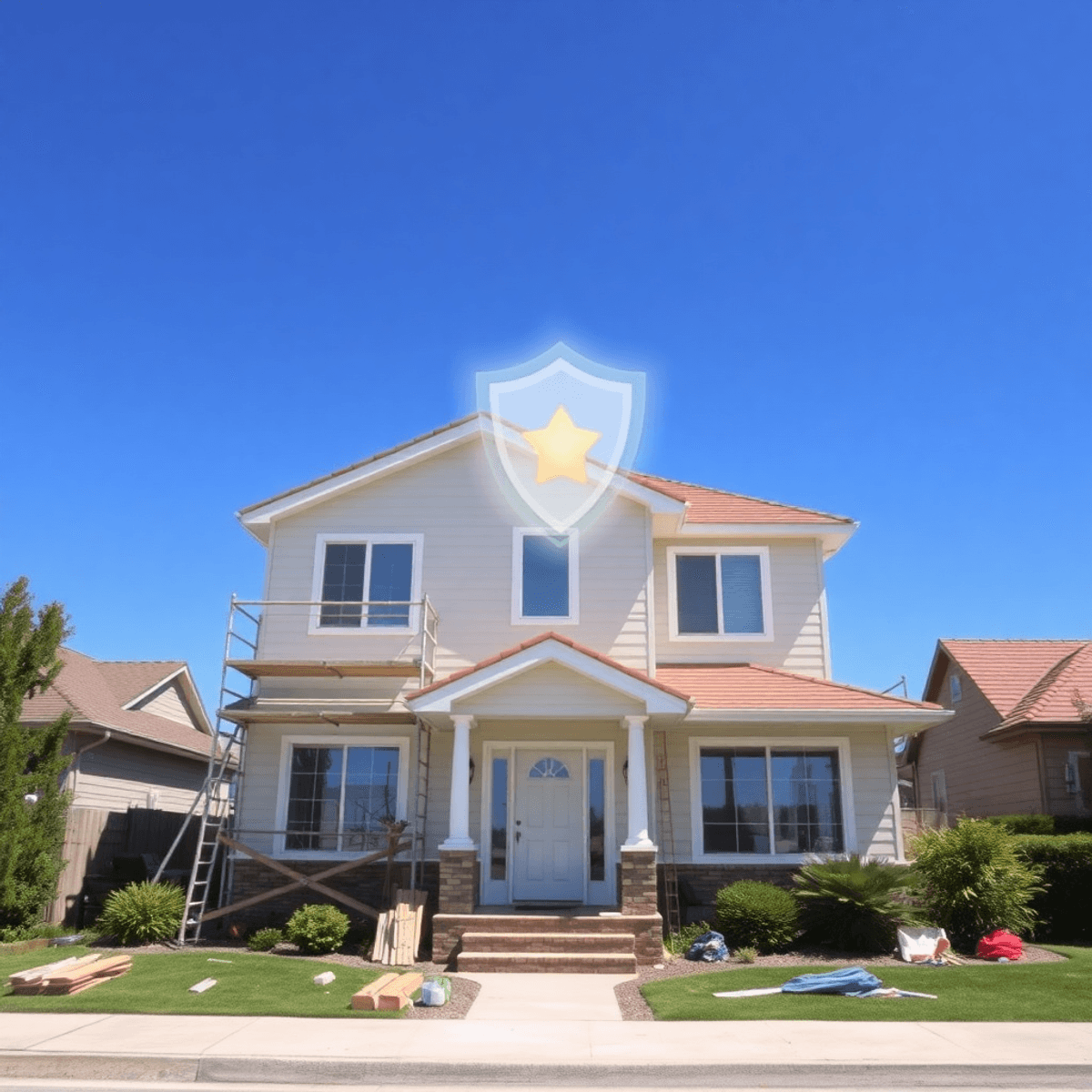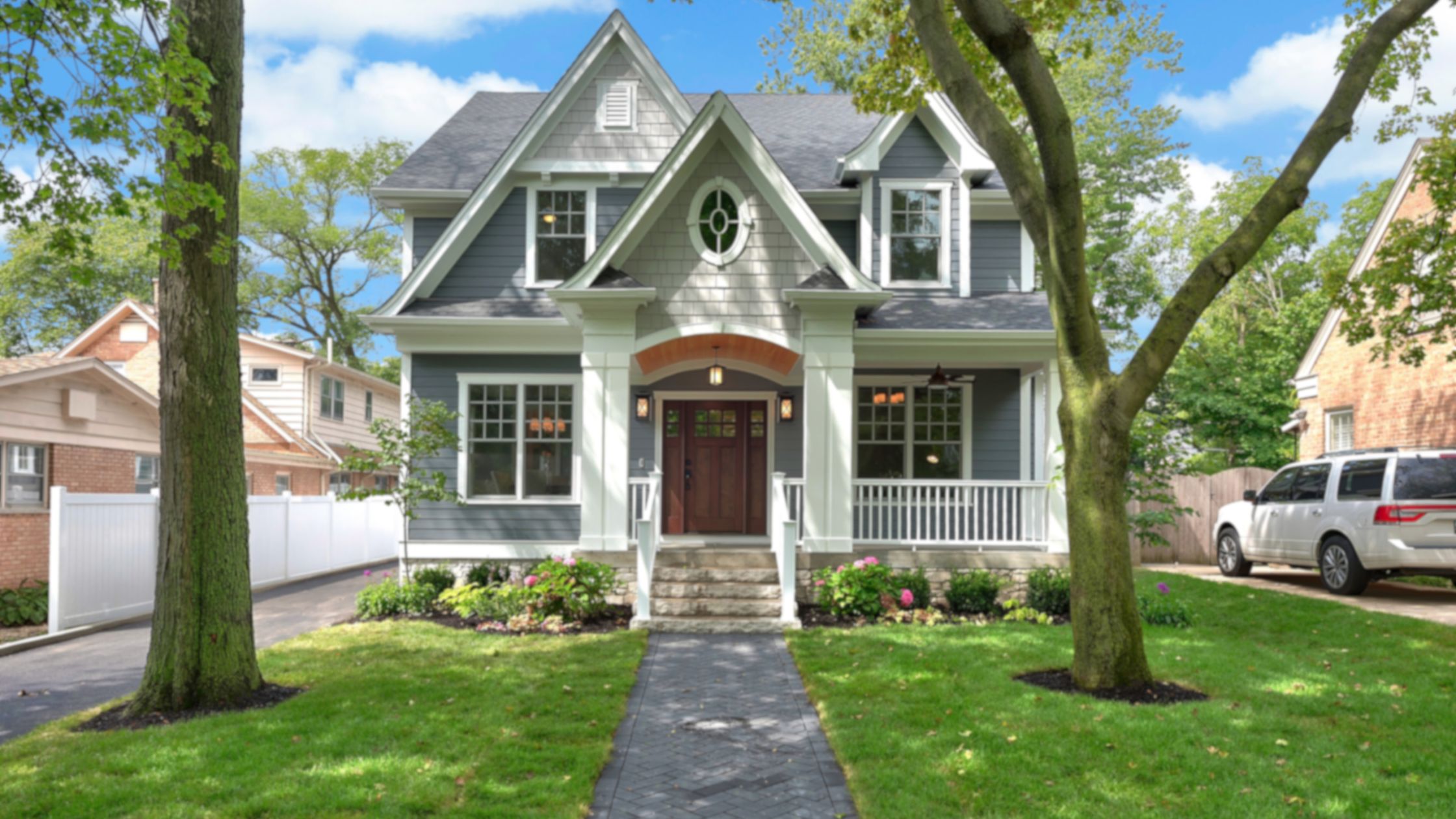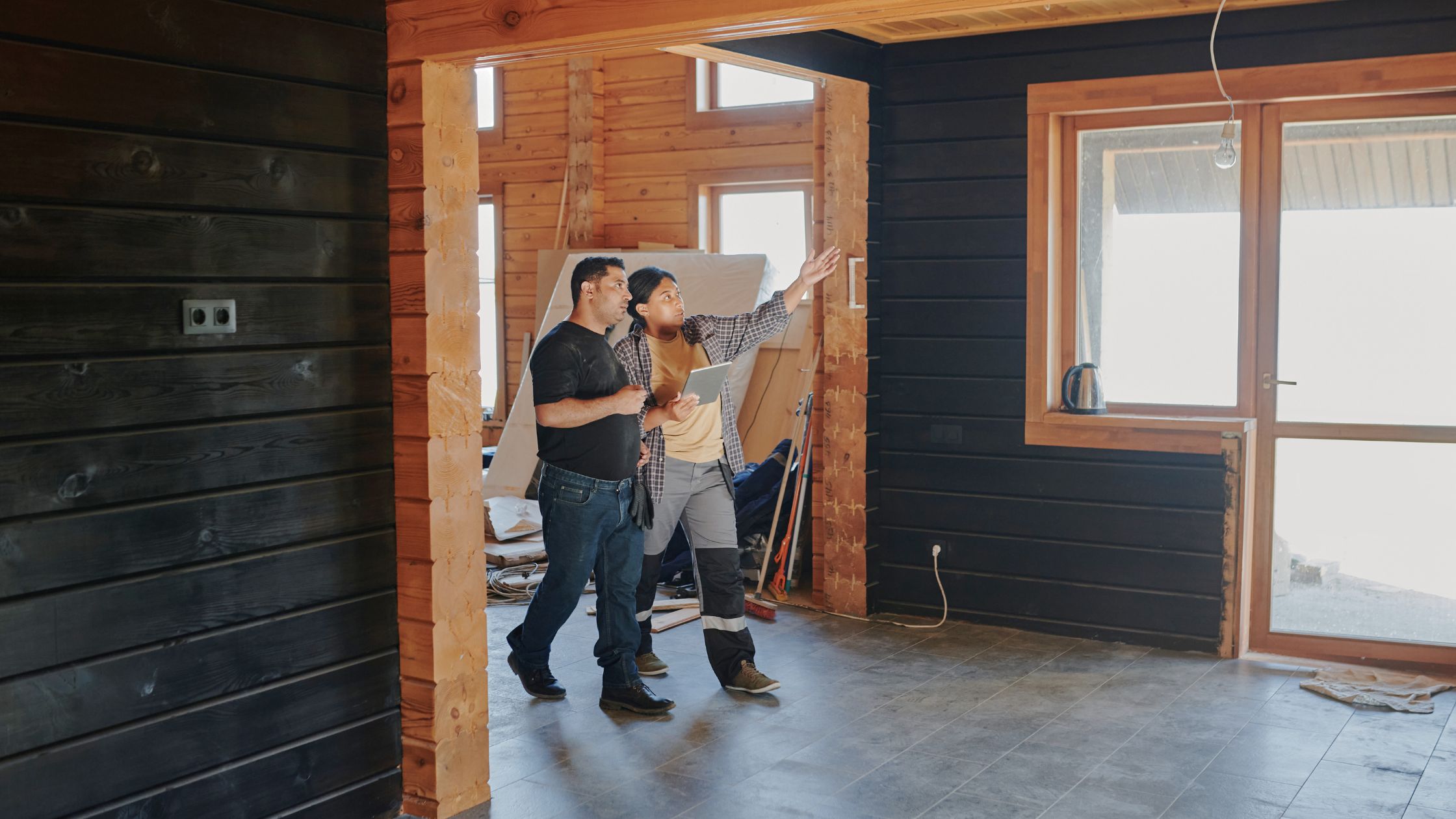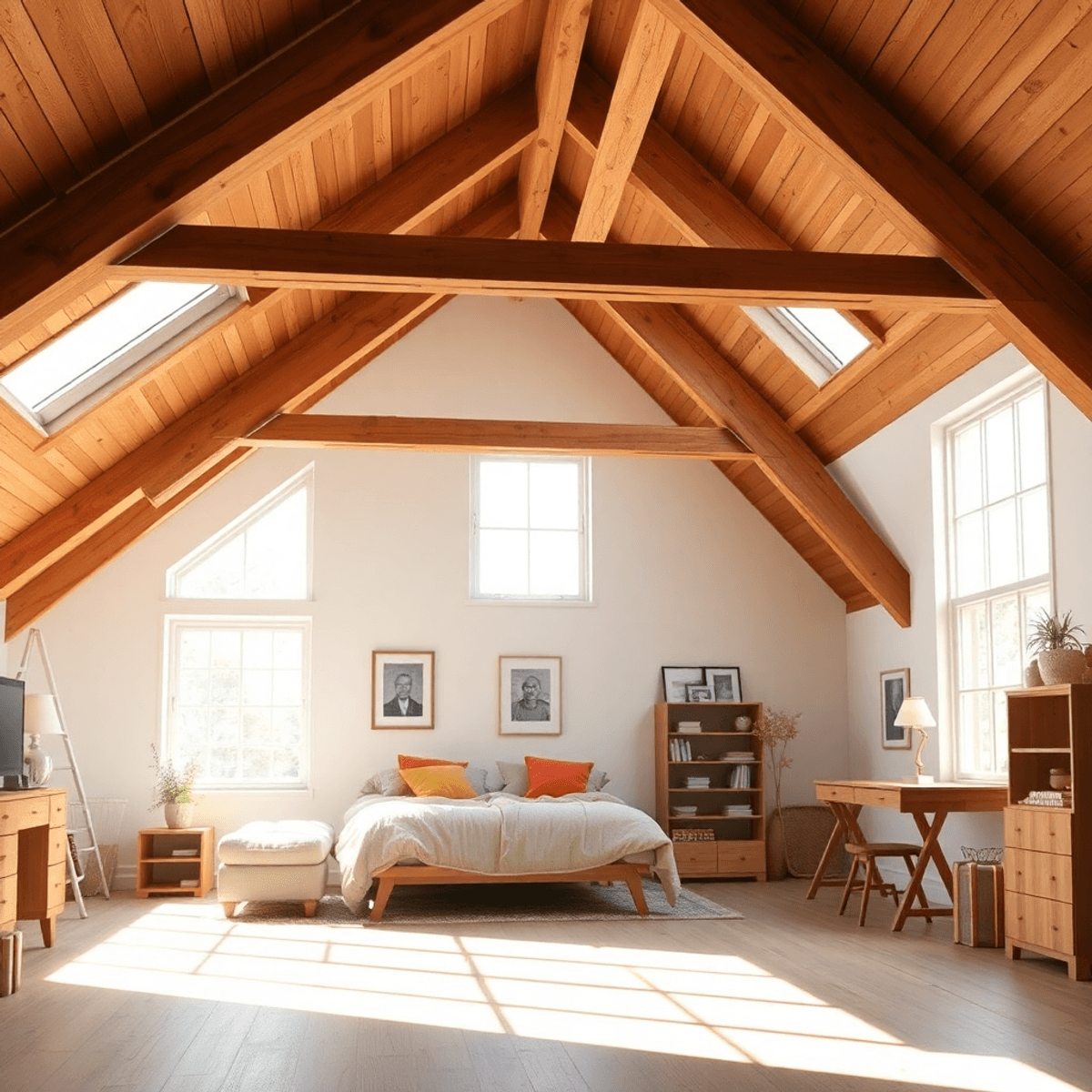Home Renovation Insurance in Illinois: What Homeowners Need to Know to Stay Protected
Home Renovation Insurance in Illinois: What Homeowners Need to Know to Stay Protected
Renovating a home in Illinois can dramatically enhance comfort, value, and functionality. Yet every remodeling project—whether a kitchen update or a full-scale addition—introduces new risks. Home renovation insurance is designed specifically to address these risks, filling gaps that standard homeowners policies often leave exposed during periods of construction or remodeling.
Without the proper coverage, Illinois homeowners face potential setbacks such as property damage, theft of materials, liability for on-site injuries, and delays that can lead to significant financial losses. Unlike typical home insurance, which may limit or exclude claims related to ongoing renovation work, specialized renovation insurance adds protection where it’s needed most.
Moreover, understanding the importance of choosing the best materials for your project can further mitigate risks. Every material has its own set of vulnerabilities and knowing them can help homeowners make informed decisions.
Key Points for Illinois Homeowners:
- Standard homeowners policies rarely cover all the risks associated with construction.
- Renovation projects increase exposure to accidents, theft, vandalism (where security measures become crucial), and structural damage.
- The right insurance policy guards your investment and ensures uninterrupted homeowner protection from start to finish.
If you’re considering a remodel or major upgrade in Illinois, understanding the details of home renovation insurance is essential for safeguarding both your property and your peace of mind. Additionally, exploring outdoor living trends could inspire your next project while keeping these insurance aspects in mind.
Why Are Homeowners in Illinois Choosing Renovations Over Moving?
Illinois’ housing market is showing signs of strength and stability, prompting many residents to invest in their current properties rather than seek a new home. High demand, limited inventory, and competitive pricing have made moving a less attractive proposition for many homeowners. Instead, resources are being channeled into upgrades and improvements—a trend easily observed by the surge in home renovation projects across the state.
Factors Driving the Renovation Boom
1. Strong Housing Market Illinois
Home prices have remained resilient, with bidding wars becoming common in desirable neighborhoods. This environment discourages selling and buying anew, as finding a suitable replacement can be time-consuming and expensive. Many homeowners see greater value in customizing their existing spaces to meet their evolving needs.
2. Remote Work Impact
The shift towards remote or hybrid work has dramatically changed what people need from their living spaces. Spare bedrooms are being transformed into home offices, basements reimagined as family or recreation rooms, and open-concept layouts are gaining preference for multitasking families. Investing in these upgrades allows homeowners to create highly functional spaces that align with their new work-life realities—without uprooting their lives.
Popular Home Renovation Trends in Illinois
1. Kitchen Remodels
Kitchens consistently top the list for renovation projects. Homeowners are opting for modern cabinetry and energy-efficient appliances but also looking for tips to keep your kitchen counter neat and clean during these renovations to enhance both aesthetics and usability.
2. Bathroom Upgrades
Spa-style bathrooms with walk-in showers, freestanding tubs, and updated fixtures are increasingly common requests among Illinois renovators. Many homeowners are also seeking smart bathroom storage ideas to maximize their bath space.
3. Basement Finishing
With more time spent at home, unfinished basements are being turned into entertainment zones, gyms, or additional living quarters.
A recent review of home renovation trends in Illinois shows that median spending on renovations sits around $22,000, with many projects focused on increasing comfort and property value rather than preparing a house for sale.
Choosing renovations over moving reflects confidence in the local market and a desire for greater personalization. It’s also a practical response to external factors like housing shortages and changing lifestyle demands. These motivations underscore the importance of addressing insurance coverage during periods of construction—especially as properties increase in value and function.
Additionally, homeowners are exploring outdoor renovations such as adding a cedar pergola or constructing a screen house, which further enhances their living space without the need to move.
Understanding Home Renovation Insurance Coverage in Illinois
Home renovation insurance coverage in Illinois is not a one-size-fits-all solution. Many homeowners assume their existing policy provides blanket protection during upgrades, but standard homeowners insurance limitations can leave you exposed in ways that aren’t obvious until something goes wrong.
Distinguishing Standard Policies from Renovation-Specific Coverage
Standard homeowners insurance usually covers the structure, personal property, and certain liabilities. However, when active construction or remodeling is underway, these policies often:
- Exclude coverage for damage caused by construction-related accidents (collapsed walls, water damage from pipe work, etc.).
- Limit protection for theft or vandalism of building materials stored on-site.
- Restrict claims if the home is vacant for an extended period due to major renovations.
Renovation-specific endorsements or policies are designed to fill these gaps. Illinois insurers may offer add-ons that address the increased risks during remodeling—yet these must be requested and approved before work begins.
Gaps in Protection During Construction
Some of the most common coverage gaps include:
- Theft of Materials: Standard policies may not cover stolen tools or appliances before they’re installed.
- New Structures: Additions like a new garage or room may have no coverage until formally added to your policy.
- Liability Risks: Injuries to workers or visitors could fall outside your liability limits if the insurer was not notified of the renovation.
Builder’s Risk Insurance: A Critical Layer of Protection
A strong option for Illinois homeowners is builder’s risk insurance. This specialized policy helps safeguard against losses while work is ongoing:
- Covers fire, wind, vandalism, and theft of building materials.
- Can extend to temporary structures like scaffolding or fencing.
- Often required by lenders when financing large renovations.
Without builder’s risk insurance, you risk significant out-of-pocket costs if disaster strikes mid-project.
Securing adequate home renovation insurance coverage in Illinois means reviewing all project plans with your insurer and understanding where standard homeowners insurance falls short. This approach reduces unexpected expenses and keeps your investment protected as changes unfold.
Exploring Home Renovation Options
When planning a renovation, it’s essential to consider various aspects such as universal design principles that can enhance the usability of your home for everyone. Moreover, if you’re contemplating an outdoor extension, deciding between a screened porch and sunroom could significantly affect your home’s appeal and value.
In addition to traditional renovations, there’s a growing trend towards using [sustainable building materials](https://rohrerforconstruction.com/tag/sustainable-building-materials), which can be beneficial for both the environment and your long-term utility costs. If you’re considering a finished basement as part of your renovation plan, it’s crucial to understand how this will impact your insurance coverage.
Lastly, if your renovation involves any form of insurance work, it’s important to communicate this with your insurer upfront to avoid any potential claim issues later on.
Typical Costs and Financial Implications of Renovations in Illinois
Recent data from Remodeling Magazine’s Cost vs. Value Report 2022 places the median home renovation expenses in Illinois at approximately $22,000. This figure captures a broad spectrum of project sizes and types, yet many homeowners encounter significantly higher costs when tackling major upgrades.
Popular renovations such as kitchen and bathroom remodels continue to command the largest share of budgets:
Kitchen Remodels
- Minor kitchen update: $15,000–$28,000
- Full upscale kitchen renovation: $60,000–$90,000+
Bathroom Upgrades
- Midrange bathroom remodel: $10,000–$25,000
- Luxury/master bath overhaul: $35,000–$50,000+
Basement Finishing
Average cost: $20,000–$40,000, depending on square footage and amenities. For those looking to make their basement more functional and modern, this guide provides valuable insights.
Roof Replacement
- Standard asphalt shingle roof: $8,500–$18,000
- Premium materials (metal/clay): up to $40,000
Window Replacements
Per window: approximately $600–$1,200, including installation
These figures illustrate why understanding the terms of your insurance policy is critical. High-value renovations increase the replacement cost of your home and can leave costly gaps in coverage if not reported and adjusted with your insurer. Homeowners researching “Home Renovation Insurance in Illinois: What Homeowners Need to Know to Stay Protected” should factor these median renovation expenses into their financial planning before any work begins.
For those considering larger scale renovations such as [adding a second story](https://rohrerforconstruction.com/second-story-addition-vs-main-floor-expansion-options-for-lake-county-homes) or expanding their main floor in Lake County homes, understanding the full scope of potential costs is essential. Additionally, homeowners can benefit from utilizing resources like the 2025 cost guide for remodeling in Lake County which offers detailed insights into budgeting for various types of renovations.
Legal Obligations and Insurance Notification Requirements for Renovations
Illinois homeowners have specific legal responsibilities when planning major renovations. It is crucial to inform your insurance provider before starting any significant work. Insurance notification for renovations in Illinois is not just a formality—it’s a requirement to ensure that your policy remains valid throughout the renovation process.
Key considerations include:
- Maintaining Policy Validity: Most standard homeowners insurance policies may include clauses requiring you to inform your insurer before making structural changes or upgrades. Failing to notify can result in denied claims if something goes wrong during construction.
- Adjusting Coverage: Renovations often increase your home’s value, affecting both replacement costs and risk factors. Insurers will need updated information so they can reassess coverage limits and policy terms. Upgraded kitchens, bathrooms, or additions typically mean higher reconstruction costs, which should be reflected in your policy.
- Premium Adjustments: With an increased home value, expect potential changes in premiums. Policy adjustments are common after renovations, especially if materials or features added are more expensive or pose extra risks (such as luxury fixtures or expanded square footage).
- Legal Compliance: Some municipalities in Illinois may require proof of insurance updates before issuing permits for certain projects.
Document every upgrade and keep records of communication with your insurer. This proactive approach helps protect your investment and avoids complications related to legal obligations homeowners during renovations.
Ensuring Contractor Compliance with Insurance Regulations During Renovations
Hiring a contractor without proper insurance exposes your renovation project—and your financial security—to significant risks. In Illinois, contractor insurance verification should be a non-negotiable step before any work begins. Two essential types of coverage to request are:
- General liability insurance: This protects you if the contractor causes damage to your property or if a third party is injured during the renovation. For example, if a subcontractor accidentally breaks a neighbor’s window or damages your landscaping, liability coverage handles those claims.
- Workers’ compensation insurance: Required by Illinois law for most contractors, this policy covers medical costs and lost wages if a worker gets injured while working on your property. Without it, you could be held personally responsible for injuries occurring on-site.
Ask contractors to provide up-to-date certificates of insurance before signing any contracts. Verify that their policies are active and cover the full duration of your project. Some homeowners choose to call the issuing insurance company directly for confirmation, reducing the risk of forged or expired documents.
Skipping these verification steps can lead to denied claims or lawsuits if an accident occurs.
Keeping detailed records of all insurance certificates and correspondence gives you peace of mind—and ensures your investment is protected throughout every phase of the renovation process.
If you’re considering a kitchen remodel, it’s crucial to partner with a reputable contractor who follows these guidelines. A reliable general contractor will not only help streamline the renovation process but also ensure that all necessary insurance regulations are adhered to, safeguarding your investment.
Managing Temporary Relocation Risks When Undertaking Extensive Renovations
Major renovations often mean your home becomes uninhabitable for weeks or months. In Illinois, this situation creates specific insurance challenges that standard homeowners policies may not fully address. Vacant or unoccupied homes face higher risks of theft, vandalism, and accidental damage. Many insurance providers have strict requirements about how long a property can remain vacant before certain coverages are reduced or suspended.
Key actions to protect yourself during temporary relocation:
- Notify your insurer as soon as you know you’ll need to move out. Many carriers require notification if a home will be vacant for more than 30 or 60 days. Failing to inform them could void parts of your coverage.
- Ask about temporary relocation insurance coverage in Illinois. Some companies offer endorsements or standalone policies designed to maintain protection against fire, theft, and liability while you’re away. For further insights into such specialized coverage, refer to this specialty coverage resource.
- Review exclusions and limitations carefully. Policies might restrict claims related to water damage, vandalism, or structural issues when the home is empty for extended periods.
- Secure your property. Insurers may expect additional precautions such as security systems, regular inspections by a neighbor or property manager, and maintaining utilities.
- Document the state of your home before leaving. Photos and written records help support any potential claim under Home Renovation Insurance in Illinois: What Homeowners Need to Know to Stay Protected.
Taking these steps ensures you maintain continuous insurance protection even when daily life moves elsewhere during major renovation work. This attention helps prevent unexpected gaps in coverage that could become costly if disaster strikes before you return.
The Impact of Renovations on Home Insurance Premiums in Illinois
Significant upgrades to your home—such as kitchen remodels, bathroom additions, or finishing a basement—often result in an increased home value. Insurers in Illinois adjust premiums based on the estimated replacement cost of your property, which means any project that boosts square footage or adds high-end finishes will likely increase your rates.
However, not all renovations lead to a steep rise in premiums. For instance, implementing smart storage ideas for every room in the house could optimize space and potentially reduce clutter, which may positively influence the insurer’s assessment of your home’s value.
Key factors influencing premium adjustments:
- Replacement Value Recalculation: When improvements raise your home’s value, your insurer reassesses what it would cost to rebuild after a loss. This new figure directly affects your premium.
- Scope and Type of Renovation: Structural changes (like adding rooms or a second story) tend to have a greater premium impact compared to cosmetic upgrades such as repainting or new flooring.
- Material Choices: Upgrades using luxury materials, custom cabinetry, or imported fixtures drive up replacement costs and can trigger larger premium increases.
- Safety Improvements: Some renovations—like updating electrical systems or installing fire-resistant roofing—may offset higher premiums by reducing risk, sometimes qualifying you for discounts.
Example: An Illinois homeowner spends $50,000 on a kitchen and bath remodel. Their insurer determines the replacement value has risen by $45,000, resulting in an annual premium increase ranging from $150 to $500 depending on the carrier and policy specifics.
Reviewing coverage after each phase of renovation ensures you avoid being underinsured while only paying for the protection you need. Accurate documentation of all upgrades is essential for both claims and future policy reviews. It’s also advisable to consult resources such as this consumer guide to homeowner insurance for better understanding and management of your home insurance policy.
Moreover, some renovations can even help improve energy efficiency, potentially qualifying you for programs like the EmPower New York Program, which offers financial assistance for energy efficiency upgrades.
Staying Proactive About Your Home Renovation Insurance Protection Throughout The Project Lifecycle
Being a proactive homeowner in Illinois means staying on top of your insurance protection from the earliest planning stages through to the last day of your renovation. This approach minimizes risk and ensures you’re never caught off guard by unexpected coverage gaps.
Proactive homeowner insurance tips Illinois residents should keep in mind include:
- Maintain open communication with your insurer: Contact your insurance provider before you break ground, and keep them updated as the project progresses. Share detailed plans, anticipated timelines, and any changes in project scope or contractors. Request written confirmation of any policy adjustments or endorsements added during renovations.
- Document every change: Take photos before, during, and after each phase of construction. Keep copies of contracts, invoices, permits, and receipts for all materials and work completed. Record upgrades such as new electrical systems or fire-resistant materials—these details can affect claims processing and future premiums.
Insurers often require evidence of upgrades for accurate policy adjustments. Thorough documentation can make claim settlements smoother and faster if damage or theft occurs.
Using these strategies keeps your renovation project fully protected and supports a stress-free experience when dealing with insurers. This mindset also lays the groundwork for addressing challenges that may arise if you need to file a claim related to ongoing construction.
Real Experiences from Illinois Homeowners on Navigating Renovation Insurance Challenges
Homeowner Stories: Successes and Setbacks
Real-world examples illustrate the impact of smart insurance choices during home renovations. These homeowner stories renovation insurance Illinois reinforce key lessons for anyone considering a remodel.
Case Study 1: Early Policy Upgrade Pays Off
Lisa in Naperville planned a major kitchen remodel. Before work began, she contacted her insurer and secured a builder’s risk policy to cover theft, vandalism, and property damage. When a severe storm damaged the new roof under construction, her claim was processed quickly—minimizing stress and out-of-pocket costs. You can read more about similar successful kitchen remodels in Illinois.
Case Study 2: The Cost of Overlooked Coverage
Tom and Maria in Oak Park started a basement renovation without notifying their insurance company. Halfway through, the project site suffered water damage due to an unexpected pipe burst. Their standard homeowners policy denied the claim because it excluded coverage for “unreported structural changes.” Tom and Maria ended up covering repairs themselves—a costly oversight. This scenario highlights the importance of understanding water damage restoration processes and ensuring adequate coverage.
To make matters worse, they had also opted for a flooring type that wasn’t resilient against water damage. If they had chosen water-resistant vinyl flooring, their basement would have been much less susceptible to such issues.
Case Study 3: Contractor Insurance Gaps Exposed
During an attic conversion in Evanston, a subcontractor was injured on the job. The homeowner believed the general contractor’s insurance would suffice, but gaps in the contractor’s workers’ compensation policy left the homeowner exposed to legal action and expenses.
Key Takeaway: Securing renovation-specific coverage early and confirming all parties’ insurance status is critical for protecting your investment during Illinois home improvement projects.
For more insights on Home Renovation Insurance in Illinois: What Homeowners Need to Know to Stay Protected, review your policy details or consult an experienced local agent before starting any construction work.
FAQs (Frequently Asked Questions)
What is home renovation insurance and why is it important for homeowners in Illinois?
Home renovation insurance in Illinois provides specialized coverage that protects homeowners from risks and potential losses during remodeling projects. It is crucial because standard homeowners insurance often has limitations that may not cover damages or accidents occurring during renovations, ensuring your investment remains protected throughout the process.
Why are more Illinois homeowners choosing renovations over moving?
The strong housing market in Illinois combined with the rise of remote work has encouraged many homeowners to upgrade their existing properties rather than relocate. Popular renovation projects include kitchen and bathroom remodels, which enhance home value and functionality without the need to move.
How does home renovation insurance coverage differ from standard homeowners insurance in Illinois?
Standard homeowners insurance typically excludes coverage for damages or liabilities related to construction or remodeling activities. Home renovation insurance or builder’s risk policies specifically cover these gaps by protecting against potential losses during the renovation phase, including property damage and liability issues.
What are the typical costs associated with home renovations in Illinois, and how do they impact insurance?
According to Remodeling Magazine’s Cost vs. Value Report 2022, median expenses for common upgrades like kitchen and bathroom remodels vary but can be significant. These improvements increase your home’s value, which may affect your insurance premiums and necessitate policy adjustments to maintain adequate coverage.
What legal obligations do Illinois homeowners have regarding insurance notification before starting renovations?
Homeowners must notify their insurance providers prior to commencing major renovations to ensure their policies remain valid and comprehensive. Failure to do so can result in denied claims or insufficient coverage, especially as increased home value from upgrades can impact premiums and coverage needs.
How can Illinois homeowners ensure their contractors comply with insurance regulations during renovations?
It is essential for homeowners to verify that hired contractors possess adequate liability and workers’ compensation insurance. This protects the homeowner from financial responsibility in case of accidents or injuries occurring on-site during the renovation project.
news via inbox
Nulla turp dis cursus. Integer liberos euismod pretium faucibua
